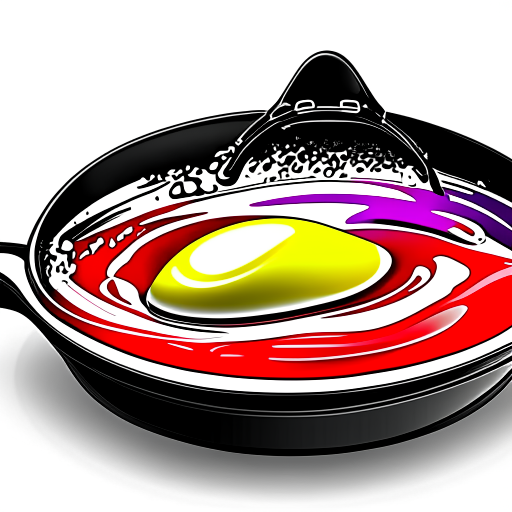Indulge in the mouthwatering world of Jewish Kosher Cuisine, where dietary laws and delicious dishes come together to create a cultural and culinary experience like no other. Tastepan.com invites you to explore the fascinating traditions and rich flavors of this ancient culinary heritage. From the strict regulations on what foods can be consumed to the inventive ways these restrictions have shaped the creation of incredible dishes, Jewish Kosher Cuisine offers a unique perspective on food culture. Join us as we journey through this captivating exploration of taste and tradition.

Jewish Kosher Cuisine
Introduction to Jewish Kosher Cuisine
In the world of Jewish culinary traditions, kosher cuisine holds a special place. With its strict adherence to dietary laws, kosher cuisine has become an integral part of Jewish identity and cultural heritage. A central aspect of Jewish life, kosher food is prepared, cooked, and consumed according to specified guidelines that have been followed for centuries.
Origin and Meaning of Kosher
The term “kosher” originates from the Hebrew word “kasher,” meaning fit or proper. Kosher food refers to food that meets the dietary requirements outlined in the Torah, the sacred text of Judaism. The concept of kosher has its roots in ancient Jewish laws and customs, serving as a reminder of the divine commandments regarding food set forth in the Torah.
Dietary Laws in Judaism
The dietary laws in Judaism, known as Kashrut, outline the specific foods that are considered kosher. These laws encompass various aspects, including the types of animals and seafood that can be consumed, as well as the way in which the animals are slaughtered. Kashrut also dictates the separation of meat and dairy products, and the prohibition of certain food combinations. The dietary laws emphasize the importance of food as a means of spiritual connection and observance in Jewish culture.
The Importance of Kosher Certification
Kosher certification plays a crucial role in the Jewish community. When a product or establishment is certified kosher, it means that it complies with all the stringent requirements of Jewish dietary laws. The certification process involves rigorous inspections and examination of ingredients, equipment, and manufacturing practices to ensure that all aspects of kosher food production are followed. Kosher certification assures Jewish consumers that the food they eat is prepared in accordance with their religious beliefs.
Kosher Dietary Laws
Prohibited Foods
The kosher dietary laws outline specific types of food that are prohibited for consumption. These include certain animals, such as pigs and shellfish, as well as insects, reptiles, and birds of prey. Blood is also prohibited, and therefore, meat must undergo a process known as kashering to remove the blood before it is considered kosher. Additionally, the combination of meat and dairy products is strictly forbidden, requiring separate utensils, cookware, and even separate meals.
Separation of Meat and Dairy
One of the fundamental principles of kosher cuisine is the separation of meat and dairy. Jewish law prohibits cooking, consuming, or deriving any benefit from a mixture of meat and dairy products. As a result, kosher kitchens have separate sets of cookware, dishes, and utensils for meat and dairy food preparation. This strict separation ensures the integrity of kosher dietary laws and prevents any accidental mixing of the two categories.
Slaughter and Animal Welfare
In kosher dietary laws, the method of animal slaughter holds significant importance. Known as shechita, the ritual slaughter requires a highly skilled shochet (ritual slaughterer) to slaughter the animal with a single, swift motion that severs the major arteries. This method is believed to cause minimal pain to the animal and is considered more humane by kosher standards. Animal welfare is also emphasized in kosher cuisine, with guidelines stipulating that animals must be treated with compassion, minimizing unnecessary suffering.

Kosher Cooking Techniques and Ingredients
Replacing Non-Kosher Ingredients
In kosher cooking, the substitution of non-kosher ingredients is a common practice. For instance, when a recipe calls for pork or shellfish, kosher alternatives such as beef or fish are used instead. Traditional Jewish ingredients like chicken, lamb, and various types of fish play a prominent role in kosher cuisine. Additionally, kosher-friendly substitutes are employed to create dishes that are both flavorful and within the bounds of Jewish dietary laws.
Koshering Meat and Poultry
To kosher meat and poultry, a process known as kashering is followed. This procedure removes the blood, which is prohibited from consumption according to Jewish law. Kashering typically involves salting the meat or poultry to draw out the blood, followed by thorough rinsing. This process ensures that the animal is fully kosher and fit for consumption. Under kosher dietary laws, to be deemed kosher, all koshering practices must be meticulously adhered to.
Kitchen Tools for Kosher Cooking
In a kosher kitchen, separate sets of utensils, cookware, and dishes are designated for meat and dairy food preparation. This division helps maintain the strict separation required between meat and dairy products. Additionally, kitchens may have separate sinks and work areas to avoid cross-contamination. Kosher kitchens often label their equipment and designate specific storage areas, ensuring that each item is used exclusively for either meat or dairy.
Traditional Jewish Kosher Dishes
Cholent
Cholent is a classic Jewish dish that is typically prepared for the Shabbat, the Jewish day of rest. This slow-cooked, hearty stew features a combination of meat, potatoes, barley, and beans, simmered overnight to create a rich and flavorful dish. Cholent is a beloved staple in Jewish households, as it allows families to enjoy a warm, satisfying meal without violating the rules of the Sabbath.
Matzo Ball Soup
Matzo ball soup is a beloved Jewish delicacy, especially during Passover. This comforting soup consists of light and fluffy dumplings made from matzo meal, a type of unleavened bread. The matzo balls are traditionally served in a flavorful chicken broth, often accompanied by vegetables such as carrots and celery. Matzo ball soup is a cherished dish that brings comfort and nostalgia to Jewish homes.
Gefilte Fish
Gefilte fish is a traditional Jewish dish usually served during holidays and special occasions. It comprises ground fish, typically a mixture of whitefish, pike, and carp, blended with breadcrumbs, onions, and seasonings. The mixture is shaped into patties or balls and then poached in fish stock. Gefilte fish is often served cold as an appetizer, garnished with horseradish, and enjoyed alongside other traditional Jewish dishes.
Bagels and Lox
Bagels and lox have become iconic in Jewish cuisine, especially in New York City. A bagel, a dense and chewy bread roll with a hole in the center, is typically topped with cream cheese, lox (brined salmon), sliced onions, capers, and sometimes tomato. This savory combination has become a favorite breakfast or brunch option, celebrated for its distinctive flavors and textures.
Kugel
Kugel is a baked Jewish dish often served as a side dish or dessert. It is made with egg noodles or shredded potatoes, combined with a mixture of eggs, butter, sugar, and spices. Some variations of kugel include apples or raisins, adding a touch of sweetness. This casserole-like dish is baked until golden and crispy on top, resulting in a comforting and flavorful addition to any Jewish meal.

Kosher Dishes from Around the World
Israeli Cuisine
Israeli cuisine reflects the diverse cultural influences within the country and incorporates a wide array of flavors and ingredients. From staples like falafel and hummus to iconic dishes like shakshuka and sabich, Israeli cuisine offers a unique blend of Middle Eastern and Mediterranean flavors. Israeli kosher cuisine embraces fresh fruits, vegetables, olive oil, and spices, creating vibrant and tantalizing dishes enjoyed by people of various backgrounds.
Middle Eastern Kosher Dishes
Middle Eastern kosher dishes encompass a range of delectable flavors and textures. From the aromatic spices of Moroccan tagines to the delicate flavors of Lebanese mezze, Middle Eastern kosher cuisine is rich in tradition and history. Falafel, shawarma, and tabbouleh are just a few examples of beloved Middle Eastern dishes that have made their way into Jewish culinary traditions.
Sephardic Jewish Cuisine
Sephardic Jewish cuisine represents the culinary traditions of the Sephardic Jewish diaspora, originating from Spain and Portugal. This cuisine incorporates a fusion of Mediterranean, Middle Eastern, and North African flavors. Dishes such as couscous, flaky pastries like borekas or bourekas, and stewed meat dishes like lamb tagine showcase the vibrant and diverse nature of Sephardic Jewish cuisine.
Ashkenazi Jewish Cuisine
Ashkenazi Jewish cuisine, originating from Eastern Europe, has developed its own distinct flavors and dishes. From the comforting flavors of matzo ball soup and potato latkes to the richness of braised brisket and rugelach pastries, Ashkenazi Jewish cuisine embraces hearty and nourishing meals. The use of ingredients like potatoes, cabbage, and traditional Jewish spices contributes to the unique character of Ashkenazi food.
Kosher Desserts and Baked Goods
Rugelach
Rugelach is a traditional Jewish pastry originating from Eastern Europe. These delicate, crescent-shaped pastries are made with a cream cheese-based dough and filled with a variety of sweet fillings, such as fruit preserves, chocolate, or nuts. Rugelach is often enjoyed during Hanukkah and other festive occasions, providing a delightful treat with every bite.
Hamantaschen
Hamantaschen are triangular-shaped cookies typically enjoyed during the holiday of Purim. These buttery, shortbread-like cookies are filled with various sweet fillings, with poppy seed and prune being traditional favorites. The distinct shape of the cookies represents the three-cornered hat worn by the villain of the Purim story, Haman. Hamantaschen are a beloved treat during Purim festivities, symbolizing the triumph of good over evil.
Mandelbrot
Mandelbrot, also known as Jewish biscotti, is a crunchy, twice-baked cookie traditionally made with almonds or other nuts. The dough is shaped into logs, baked until golden and firm, and then thinly sliced and baked again to achieve a satisfying crunch. Mandelbrot is often enjoyed with a cup of tea or coffee, making it a delightful snack or dessert in Jewish households.
Babka
Babka is a sweet, yeasted cake popular in Jewish communities and Eastern European cultures. This decadent dessert is typically made with a twisted or swirled dough, filled with ingredients such as chocolate, cinnamon, nuts, or sweetened cheese. Babka is often served as a centerpiece during holidays or family gatherings, delighting everyone with its rich, buttery flavor and beautiful presentation.
Honey Cake
Honey cake holds a special place in Jewish culinary traditions, especially during Rosh Hashanah, the Jewish New Year. This moist and aromatic cake is made with honey, spices like cinnamon and cloves, and often incorporates dried fruits and nuts. Honey cake symbolizes the hopes for a sweet and prosperous year ahead, making it a quintessential dessert during Jewish holiday celebrations.
Modern Takes on Jewish Kosher Cuisine
Kosher Fusion Cuisine
In recent years, kosher fusion cuisine has emerged as a delightful way to create innovative dishes that honor Jewish dietary laws while incorporating flavors from different culinary traditions. Chefs and home cooks alike have been experimenting with fusion cuisines, blending kosher ingredients and recipes with diverse culinary influences from around the world. Kosher fusion cuisine offers a glimpse into the evolving nature of Jewish food, bringing new and exciting flavors to the table.
Vegan and Vegetarian Kosher Options
With the rise in popularity of vegan and vegetarian diets, kosher cuisine has also adapted to cater to these dietary preferences. Many Jewish restaurants and home cooks have embraced plant-based kosher recipes, replacing meat and dairy ingredients with flavorful alternatives. From vegan matzo ball soup to dairy-free kugel, the creative use of plant-based ingredients has expanded the options for those seeking kosher dishes that align with their dietary choices.
Catering to Dietary Restrictions
Kosher cuisine’s strict adherence to dietary laws has provided a foundation for accommodating various dietary restrictions. As allergens and dietary requirements have become more prevalent, kosher food has become an attractive option for those with specific dietary needs. Kosher restaurants and catering services are often well-equipped to handle requests related to gluten-free, nut-free, and other common dietary restrictions, ensuring that individuals with diverse dietary needs can enjoy delicious kosher meals.
Popular Jewish Kosher Restaurants
Kosher Restaurants in New York
New York City is renowned for its vibrant Jewish community and diverse culinary scene. The city is home to numerous kosher restaurants that offer an array of traditional and contemporary Jewish dishes. Whether you’re in the mood for a classic pastrami sandwich at Katz’s Delicatessen or a gourmet kosher dining experience at one of the city’s upscale kosher eateries, New York has something to tantalize every taste bud.
Kosher Restaurants in Tel Aviv
Tel Aviv, Israel’s culinary capital, boasts a wide range of kosher restaurants that showcase the best of Israeli and Jewish cuisine. From trendy vegetarian cafes to upscale steak houses, Tel Aviv’s kosher restaurant scene reflects the city’s modern and cosmopolitan atmosphere. Visitors can savor Israeli classics like falafel and hummus, alongside innovative dishes that highlight local ingredients and flavors.
London’s Kosher Dining Scene
London is home to a thriving Jewish community that has contributed to the city’s diverse gastronomic landscape. A diverse array of kosher restaurants dot the city, serving up traditional Jewish fare alongside international cuisines. From elegant kosher dining to casual Jewish delis, London offers an exciting culinary experience for those seeking kosher cuisine in the heart of the city.
Kosher Wine and Beverages
The Significance of Wine in Jewish Culture
Wine holds significant cultural and religious importance in Jewish traditions. It is often associated with celebrations, religious rituals, and special occasions. Jewish Sabbath meals and holiday feasts often feature the Kiddush, a blessing recited over a cup of wine, symbolizing joy and sanctification. Wine is also an integral part of Jewish lifecycle events, like weddings and circumcisions, where it is used to sanctify the moment and bring blessings upon the participants.
Kosher Wine Production
Kosher wine production adheres to strict guidelines to ensure its compliance with Jewish dietary laws. From the careful selection of grapes to the processing and bottling stages, every step is closely monitored to maintain kosher standards. Wineries undergo rigorous certification processes to ensure that all ingredients and production methods align with the requirements of kosher wine production. Kosher wine adds a meaningful touch to Jewish celebrations and offers a wide range of flavors and styles to suit every palate.
Other Kosher Beverages
In addition to wine, a variety of other beverages are part of the kosher repertoire. Non-alcoholic options such as grape juice are commonly used as a substitute for wine during religious ceremonies and for those who do not consume alcohol. Many kosher-certified soft drinks, fruit juices, and teas are readily available to cater to the diverse preferences of Jewish consumers. Kosher beverages offer a wide range of choices that adhere to the strict dietary laws, ensuring that Jews can enjoy a refreshing drink with peace of mind.
Celebrating Jewish Holidays with Kosher Food
Passover
Passover, one of the most important Jewish holidays, features a unique set of dietary laws that go beyond the regular kosher restrictions. During Passover, leavened products, known as chametz, are forbidden. Instead, matzo – unleavened bread – becomes a staple food during the holiday. Traditional Passover dishes such as brisket, charoset, and tzimmes are enjoyed by Jewish families as they commemorate the liberation of the Israelites from slavery in ancient Egypt.
Rosh Hashanah
Rosh Hashanah, the Jewish New Year, is a time of reflection and celebration. Traditional foods, such as apples dipped in honey, symbolize hopes for a sweet and fruitful year ahead. Other customary dishes, like challah bread and round-shaped foods, represent continuity and the cyclical nature of life. Honey cake, pomegranates, and a variety of other symbolic foods are enjoyed during Rosh Hashanah meals, creating a festive and meaningful dining experience.
Hanukkah
Hanukkah, also known as the Festival of Lights, is a joyous holiday commemorating the rededication of the Holy Temple in Jerusalem. The holiday is associated with the miracle of oil, and foods fried in oil are central to Hanukkah celebrations. Latkes, potato pancakes fried to golden perfection, and sufganiyot, filled donuts dusted with powdered sugar, are popular Hanukkah treats. These indulgent foods symbolize the miracle of the small amount of oil that lasted for eight days in the temple’s menorah, exemplifying the importance of gratitude and miracles in Jewish life.
In conclusion, Jewish kosher cuisine stands as a testament to the rich traditions, cultural heritage, and dietary laws of the Jewish people. From the meticulous guidelines governing food preparation and consumption to the diverse and flavorful dishes that have evolved over time, kosher cuisine transcends mere sustenance and becomes a way of life. Whether enjoying traditional Jewish dishes or delving into the world of modern kosher fusion cuisine, the importance of kosher food in Jewish culture cannot be overstated. So next time you have the opportunity, explore the diverse flavors and history of Jewish kosher cuisine – you won’t be disappointed.

